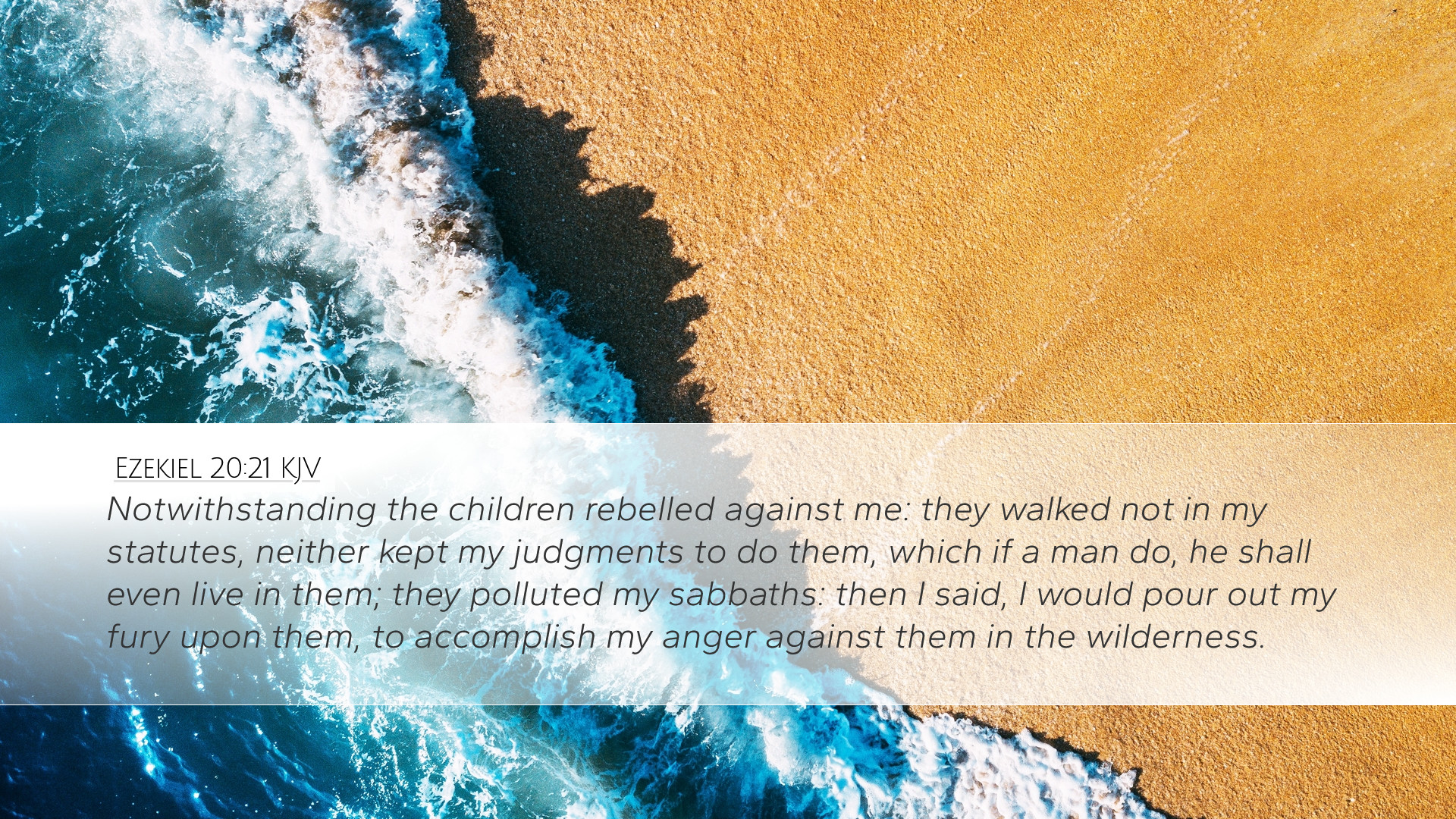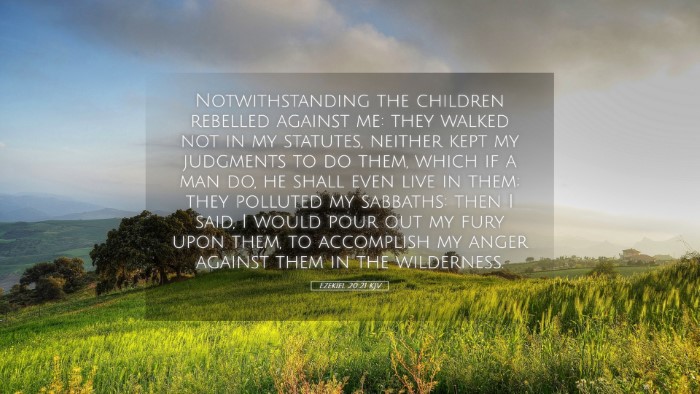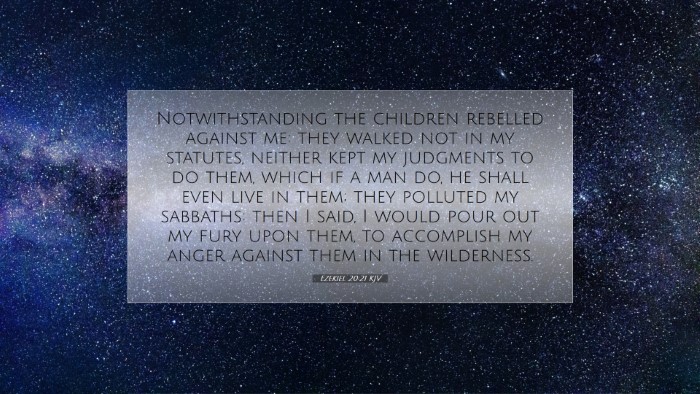Ezekiel 20:21 - Commentary and Insights
Verse Context: Ezekiel 20:21 states: “Yet the children rebelled against me: they walked not in my statutes, neither kept my judgments to do them, which if a man do, he shall even live in them; they polluted my sabbaths: then I said I would pour out my fury upon them, to accomplish my anger against them in the wilderness.” This verse reveals the persistent disobedience of the children of Israel despite God's efforts and covenants.
Historical Background
The context of this verse lies within the prophetic ministry of Ezekiel, who addressed the exiled community in Babylon. As a contemporary of Jeremiah, Ezekiel was called to confront the spiritual apathy and rebellion against God’s laws among the Israelites. This passage highlights a recurring theme in Ezekiel’s discourse—that of rebellion versus God’s righteous statutes.
Analysis of Key Themes
-
Rebellion Against God
Ezekiel emphasizes the repeated rebellions of the people. Matthew Henry notes that although God extended mercy, Israel's refusal to heed His commandments resulted in inevitable judgment. This persistent pattern underscores the human inclination to stray from divine guidance.
-
Statutes and Judgments
The refusal to walk in God's statutes indicates a rejection of His authority and wisdom. Adam Clarke elaborates that God’s laws are meant for the welfare of His people; the neglect of these statutes leads not only to personal ruin but also a loss of communal identity and purpose.
-
Sabbath Polluted
The act of polluting the Sabbath signifies a profound disrespect for God’s holy commands. Albert Barnes points out that the Sabbath is both a sign of God’s covenant with Israel and a day for spiritual nourishment, suggesting that neglecting this sacred time leads to spiritual decay.
-
Divine Judgment
The mention of God's fury illustrates His righteous anger at the rebellion of His people. Henry interprets this as a natural response of a holy God to unrepented sin. The wilderness, a symbol of desolation, serves as a potent image of the consequences of disregarding God's statutes.
The Nature of Israel’s Rebellion
Israel's rebellion is characterized by a systematic disobedience that is described in both action and attitude. Clarke notes that the children of Israel did not just fail to comply with the laws; they also actively chose paths contrary to God's commandments. This refusal reveals an attitude of heart that prioritizes personal or societal desires over divine mandates.
The Call for Holiness
In the context of Ezekiel 20:21, God’s call for holiness is evident. God desires His people to reflect His character, which is inherently holy and righteous. This is captured poignantly in the Reformed tradition, where holiness is integral to the believer’s identity. Therefore, the rebellion not only disrupts individual fellowship with God but also distorts the very nature of the covenant community.
Theological Implications
These insights lead to profound theological implications:
-
The Sovereignty of God:
This verse reaffirms God's sovereign authority over Israel and His expectation of obedience. Despite the people's defiance, God's sovereignty dictates the future course of events, depicting a masterful plan that works even through human failure.
-
The Nature of Judgment:
God’s judgment is portrayed not merely as a punitive response but as a corrective measure meant to guide His children back to Him. This reflects a larger biblical theme of redemption, where judgment serves ultimately to restore and realign.
Application for Today’s Believers
For pastors and church leaders, this passage serves as a reminder of the seriousness of spiritual leadership. The rebuke that Ezekiel communicates to Israel can act as a mirror for the modern church, prompting self-examination regarding adherence to God's teachings.
The persistent nature of rebellion warns contemporary believers against complacency in faith practice. As students of the Word, it invites us to evaluate our own lives and the ways in which we may be sidelining God's statutes in favor of cultural or personal comforts.
Conclusion
Ezekiel 20:21 serves as a sobering reflection on the relationship between God and His people. It encapsulates the struggles within that relationship caused by human disobedience, yet it also reveals God's unwavering call to repentance and holiness. Embracing the lessons from this passage can foster a deeper commitment to live according to God's statutes, ensuring that believers cultivate a vibrant relationship with the divine through obedience and reverence for His holy days.


